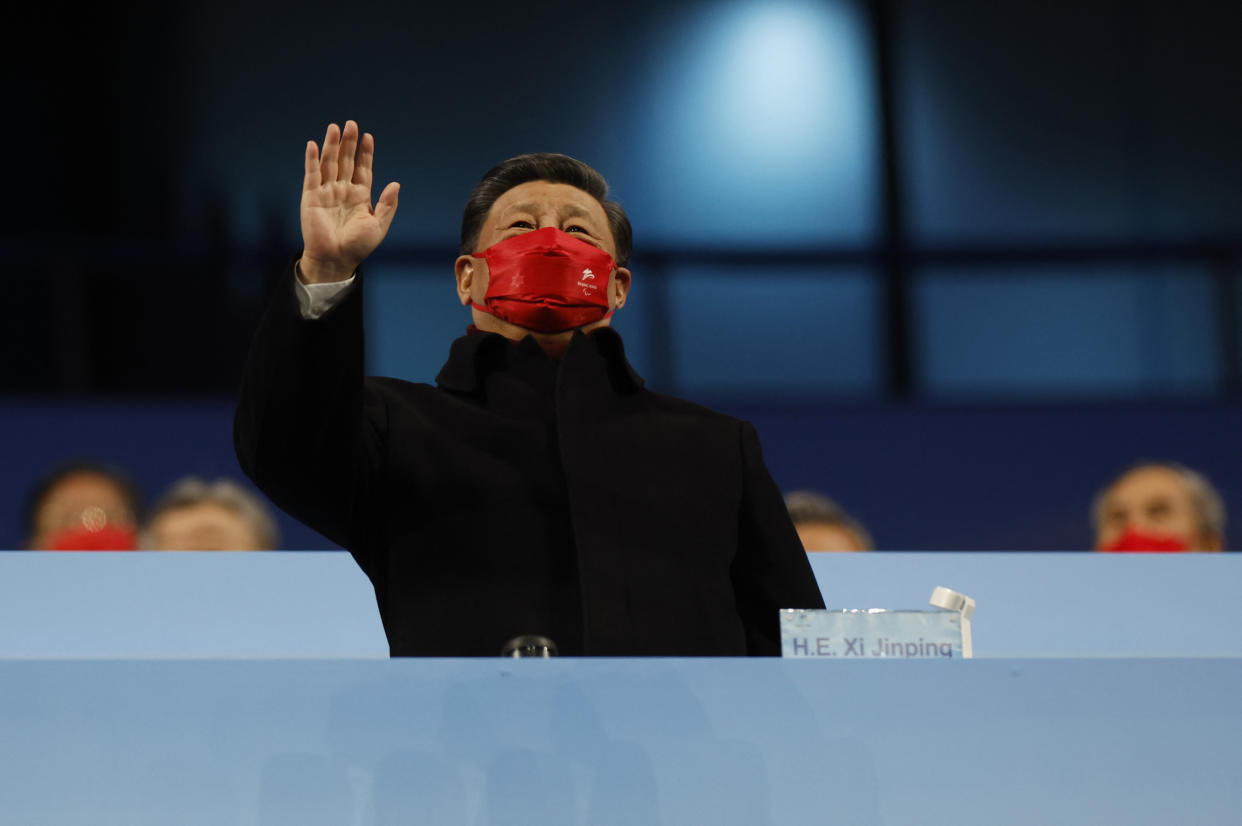Bombshell health claim about Chinese president Xi Jinping
Rumours are swirling about the health of Chinese president Xi Jinping with unconfirmed reports the leader of the Chinese Communist Party was hospitalised late last year.
Claims have emerged that Xi suffered from a "cerebral aneurysm" which left him hospitalised at the end of 2021.
The Economic Times in India, as well as a number of other publications in the country, have reported on the rumour.
A cerebral aneurysm can lead to the rupturing of blood vessels in the brain.
According to the reports, the Chinese president preferred to be treated with traditional Chinese medicines rather than opting for surgery.

Some China watchers have reacted with skepticism over the claims, but it has added to the growing speculation about the secretive leader who has been particularly reclusive during the pandemic.
"Xi hasn’t left China in 21 Months. Covid may be only part of the reason," ran a November headline in The New York Times.
While the report largely put it down to a shift in the internal politics of the country which has increasingly turned inward, the absence of Xi on the world stage has fuelled concerns about the health of the 68-year-old.
Rumors are circulating that Xi Jinping was hospitalized late last year from a cerebral aneurysm. https://t.co/dXehrEVUg1
— Isaac Stone Fish (@isaacstonefish) May 10, 2022
It is the nature of autocracies and their tight stranglehold on information, that leads to such rumours. Similar speculation has surrounded Russian dictator Vladimir Putin, which has gone into overdrive since his invasion of Ukraine.
The intense focus on the leader's health also speaks to the outsized power and control they wield over the country and its politics, with Xi consolidating power in recent years and taking China in an increasingly authoritarian direction.
Four in ten Australians say concern over China is an election issue
Concern about China will impact the way four in ten Australians vote in this month's national election, according to a university survey that also found voters saw the major political parties as equally well placed to handle the relationship with Beijing.
Satellite images reveal China's 'accelerated' threat to Australia
China accused of 'state-sanctioned cruelty' over letter to residents
Scott Morrison fuels China election allegations: 'We're very aware'
Scott Morrison was keen to put his government's hawkish stance on China at the forefront of the election campaign but has been on the back foot since China officially signed a security agreement with the Solomon Islands.
The Australia-China Relations Institute (ACRI) at the University of Technology in Sydney (UTS) said Australians who say China policy will impact the way they vote are also more likely to express alarm and apprehension about Australia-China relations.
The university's survey of 2,000 people nationally found 40 per cent said the government's management of China policy was an issue that would impact their vote.
Of these, 78 per cent expressed mistrust of the Chinese government, and 84 per cent said Beijing was willing to use trade to punish Australia over political disagreements.
The survey was conducted March 18-30, a period when the Solomon Islands security pact with China was publicly revealed, worrying Western allies who are concerned it could provide a gateway for a Chinese military presence in the Pacific.
Elena Collinson, senior researcher at UTS:ACRI, said in the report that growing concern about regional instability has been a focal point of the election campaign.
Australians are evenly split between the Liberal Party (36 per cent) and Labor Party (35 per cent) as best placed to handle China policy, the survey found.
There was a six-point rise from a similar survey in 2021 in the number of Australians who see China as a security threat (73 per cent), and an 11-point rise in support for Australian engagement in military conflict between the United States and China over Taiwan (56 per cent).
The findings "serve to underline that this is the most challenging period Australian diplomacy has faced since Japan threatened the East Asian order in the 1930s," the report said.
with Reuters
Do you have a story tip? Email: newsroomau@yahoonews.com.
You can also follow us on Facebook, Instagram, TikTok and Twitter and download the Yahoo News app from the App Store or Google Play.




